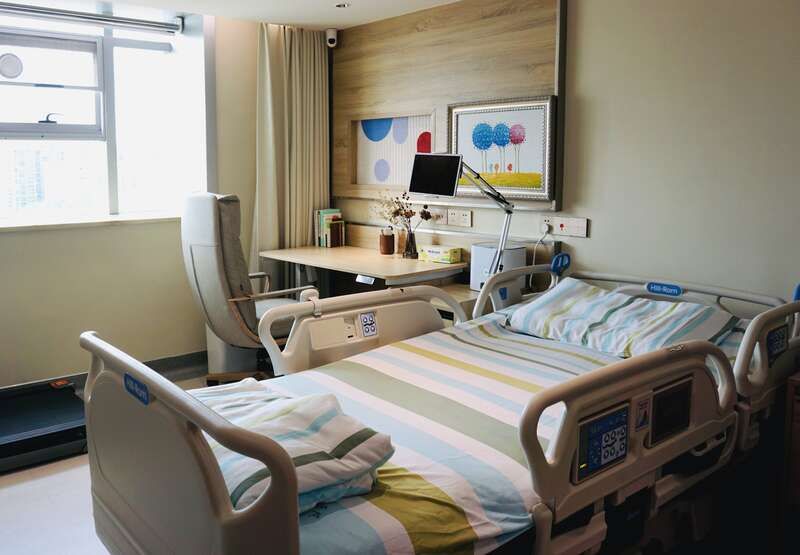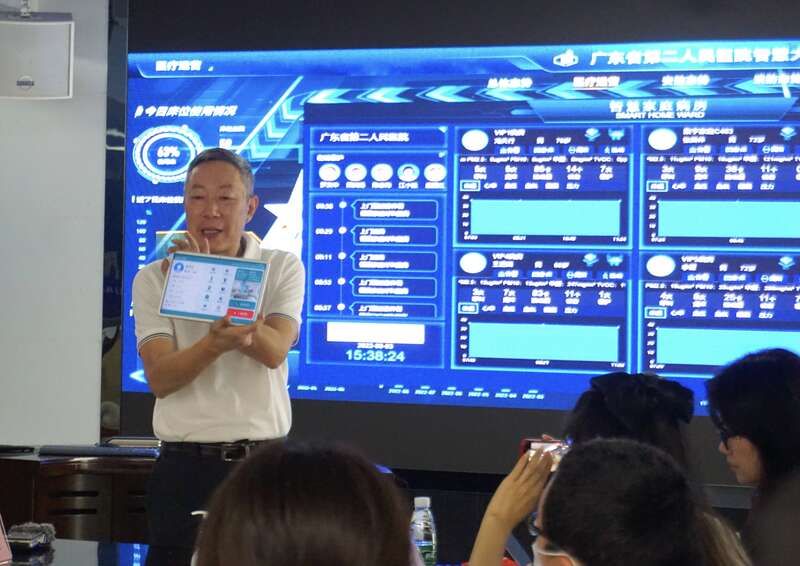China Youth Daily Client News (Huang Xinlin, China Youth Daily, China Youth Daily reporter Lin Jie) On August 5, the Second People’s Hospital of Guangdong Province held a series of academic activities for the 75th anniversary of the establishment of the hospital and a press conference on the smart family ward. The first smart home ward built in the country was unveiled.

The first smart home ward in China. Huang Xinlin/Photo
The biggest difference from ordinary wards is that the smart home ward is equivalent to “moving” the ward to the user’s home. Unified platform management, and at the same time connecting the data at both ends of the family and the hospital, to provide personalized and accurate smart health services for chronic disease patients, the elderly, the disabled and other groups.
Gu Hongying, director of the Second People’s Hospital of Guangdong Province, said that with the growing aging society, family intelligence has become the general trend. Exploring intelligent applications for the elderly and the disabled is of great significance to improving the quality of life of the elderly.
When the user wakes up in a home designed as a smart home ward, he can stand on the body fat scale to measure the basic signs such as heart rate, weight, body fat rate, basal metabolic rate, etc., and start a new day of health. Nourishing journey.
For example, when using the bathroom, the smart toilet will analyze the user’s urine to assess whether there are abnormal indicators, and the smart seat will monitor his heart rate, body fat, toilet time and other data. When it is time to take the medicine, the smart pill box will light up the prompt light, pop up the right amount of pills for the user to take, and automatically generate a medication record. When it is time to sleep, the user can adjust the smart bed to the appropriate inclination, and adjust the indoor light and curtain shade. During sleep, smart mattresses and smart pillows will automatically monitor the user’s heart rate, breathing rate, body movement frequency, weight change and other indicators during sleep.
The data collected by the smart devices in the whole house are uploaded to a unified platform synchronously, and users can check the data on the platform through the tablet computer beside the bed.

Tian Junzhang, Secretary of the Party Committee of the Second People’s Hospital of Guangdong Province, introduced the first smart home ward project in China. Huang Xinlin/Photo
One end of the smart home ward is the user at home, and the other end is the medical staff on duty in the hospital. The user’s sign data monitored at home will be uploaded to the “virtual ward” in the hospital (that is, the remote management center at the hospital). In the “virtual ward”, medical staff can consult relevant data at any time and remotely manage the user’s condition.
Once a user falls and other accidents at home, the human body motion sensing device will automatically sense it, send an alarm to the medical staff at the hospital, notify them to come to carry out emergency treatment, and simultaneously notify their family members.
Tian Junzhang, Secretary of the Party Committee of the Second People’s Hospital of Guangdong Province, said that based on smart home wards, we hope to realize the interconnection and closed-loop management of smart home wards, community unmanned clinics, community health service centers, and smart hospitals in the future. Create an integrated service model of “medical care, rehabilitation, psychology, diet, life, and entertainment” to truly realize “a hospital without walls”.
In 2021, the Second People’s Hospital of Guangdong Province will build the country’s first 5G full-scenario smart hospital, achieving a breakthrough in the multi-scenario collaboration of smart hospitals from 0 to 1. This year, we will further innovate and extend on this basis, and promote the construction of the first smart home ward in the country.
Source: China Youth Daily Client